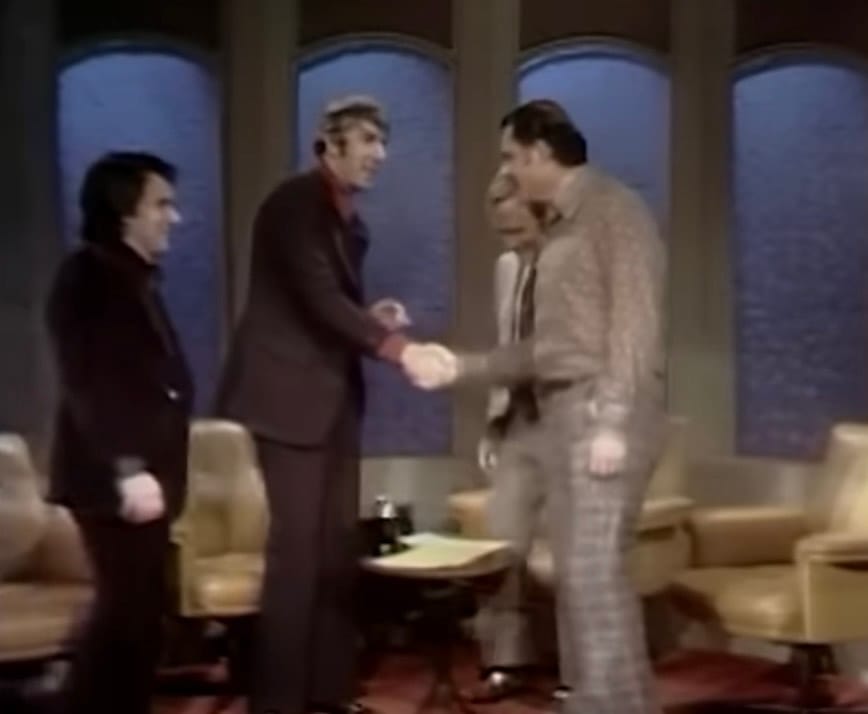AWKWARD

There was a uniquely British awkwardness—loaded with tension—between Robert Shaw, Dudley Moore, and Peter Cook when they were interviewed by talk show host Dick Cavett on November 30th, 1975. It felt like watching three naughty schoolboys on a foreign school trip. Revisiting Cavett’s interviews today is awkward enough (he was a rather poor interviewer, not unlike Charlie Rose), and yet, somehow, he managed to attract the biggest names of the time to sit down with him—for several decades. And it's funny to think — in these days of YouTube's Library of Alexandria–like archive, looking back — that before the global syndication of network TV, most of these interviews would not have been seen outside the US.
The real intrigue on this particular occasion lay in the contrast between Robert Shaw’s suspected drunkenness and Peter Cook’s suspected sobriety, with Cavett and Moore playing referees to the obvious tension between the two men—like two alcoholics recognising their own vice in each other. (Shaw's father was an alcoholic who died by suicide when Shaw was young.) There’s also a lingering sense that all three British men were equally insecure, each grappling with his own form of imposter syndrome while abroad, yet clearly enjoying the freedom that came with being away from the repressed constraints of the motherland. There's a looseness here that suggests the three Englishmen could have fun at Cavett's expense, aware that his American audience likely wouldn’t catch the innuendo behind their barely disguised barbs.
Shaw, for his part, seems barely interested in promoting the film he’s there to discuss — The Sting, the George Roy Hill classic starring Paul Newman and Robert Redford — and far more interested in talking about the subject of sex with Moore and Cook (another nod to their schoolboy silliness). Cook, in turn, passive-aggressively rubs salt in the wound by bringing up Shaw’s drinking — which Shaw counters by accusing Cook of being drunk in an earlier interview with Michael Parkinson, an accusation the comedian handles with candid honesty.
This kind of edge in interviews rarely happens today, in an era where everyone seems desperate to stay on-brand and preserve their image. Back in 1975, it seemed people were happy to sling shit and fight their corner without any cosmetic need to pretend to like one another.
In that sense, it's refreshing to look back at these old interviews—and a stark reminder of how uptight we’ve become in an age where status outweighs genuine character.